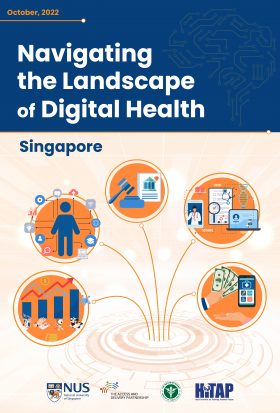This website uses cookies so that we can provide you with the best user experience possible. Cookie information is stored in your browser and performs functions such as recognising you when you return to our website and helping our team to understand which sections of the website you find most interesting and useful.
Navigating the Landscape of Digital Health: Singapore

Details
Digital health interventions (DHIs), such as electronic decision support tools, telemonitoring, or mobile health (mHealth) apps, have the potential to address health system challenges that limit the achievement of universal health coverage (UHC).
Regional economic development and a growing ageing population have put significant strain on the sustainability of the Singaporean health system. These developments increased the demand for health services yet decreased the workforce supply. The coronavirus disease 2019 (COVID-19) pandemic has significantly accelerated the development, implementation, and adoption of digital health technologies. These technologies have shown the potential to empower patients and providers, promote universal health services coverage, improve long-term patient outcomes, and reduce healthcare costs.
Unfortunately, fundamental barriers can prevent implementation and access to DHIs. Health system governance (e.g., national privacy regulations, internet access), health provider (e.g., digital literacy, perceived effectiveness), patient (e.g., age, sex, socioeconomic factors), and technological (e.g., a context-specific adaptation of technology, interoperability) factors can affect the implementation of new DHIs.
To better understand the unique challenges and opportunities of DHIs in Singapore, this report analyses the Singaporean digital health landscape, including its legal frameworks, processes involved in conducting health technology assessment (HTA) of digital health technologies, stakeholders, and lessons learned.




